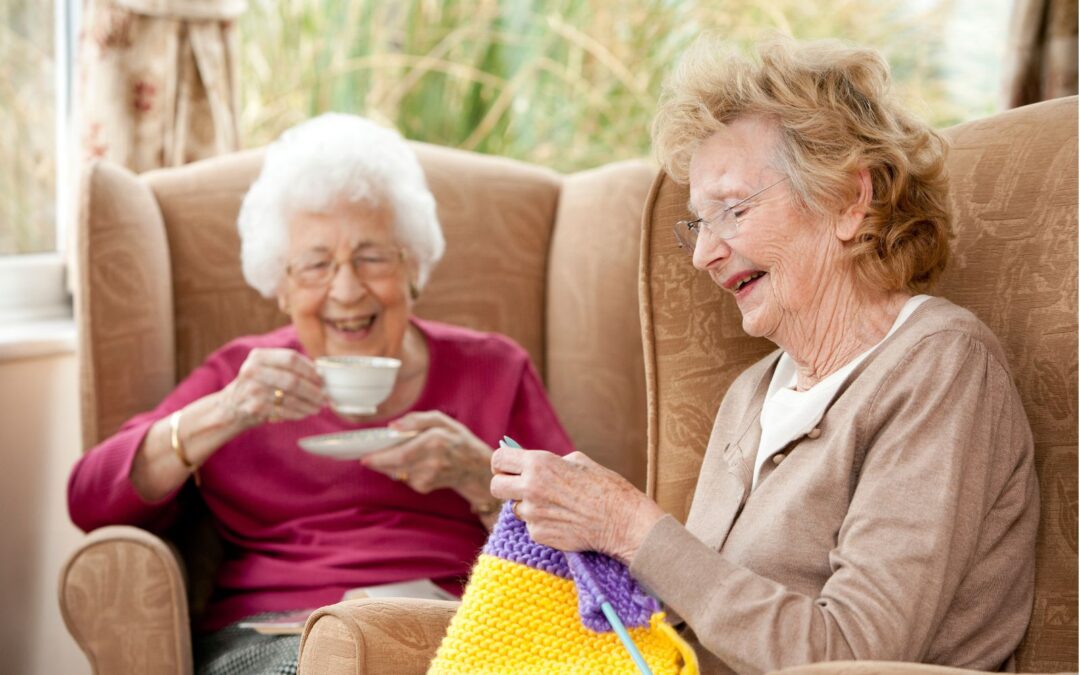If your loved one is suffering from early-stage dementia, then living at home can be a suitable option that allows them to maintain a high level of independence. However, living alone with dementia has its risks, and unless someone can supervise every hour of the day then it is good to take some simple steps around the home to mitigate risks and protect your peace of mind.
Simplify Home Layout
Making clear open spaces in the home where possible enhances mobility and accessibility, it can help to reduce the risk of bumps and trips which are common hazards for individuals with dementia. This is also especially important if your loved one relies on a wheelchair to get around.
Good Lighting
Where possible, ensure that where your loved one is staying has as much natural lighting as possible. This can mean changing the blinds or curtains to make them easier to open, or even implementing smart blinds which open on a schedule.
Make sure all bulbs are working and that the switches are easy to see and not too fiddly to turn on, in this instance a traditional on/off switch can be a lot easier than a twisting dimmer switch which requires more dexterity and mobility to turn on and off.
On the flip side, the bedroom must be fully dark at night so that your loved one can more easily reap the benefits of quality sleep.
Use Contrasting Colours & Textures
When creating a dementia friendly environment, it is important to make items around the home, and the changes from wall to floor as obvious in their positioning as possible. A way to do this is with contrast, for walls and flooring. A strong change in colour can help with perspective, and understanding when in the space the levels are changing.
When it comes to furniture, using contrasting colours can help your loved one to differentiate large items around the home from the floor or walls, this can reduce the likelihood of trips and falls.
It is also good where possible to avoid strong patterns and stripes which can be visually confusing.
Utilise Signage to Help With Remembering Important Things
Post-it note reminders or signs can help around the house of a person with dementia. Little notes can be hugely useful whether this is for reminding them where things are, such as keys and bank cards, or reminding your loved one to do certain things such as locking the door or turning off electricals.
Keep the Bathroom Simple
It may be necessary to label the bathroom door to help your loved one. As well as this, it is important to make the bathroom as simple as possible, this can be done in ways such as removing the toilet lid, having towels in a colour that contrasts with the walls, and minimising the number of hygiene products scattered around.
Add Safety Modifications
There are many options for additions that can help to make your loved one’s home dementia-friendly such as grab rails, sensors, and chair lifts. There are also on-person alarms that your loved one can wear which will send alerts if they need help. These can monitor heart rate, blood oxygen levels, and detect falls.
Keep Sentimental Items Visible
While still avoiding clutter, family photos and keepsakes around the home can provide comfort and aid memory. This also helps to keep familiarity for your loved one if several noticeable changes to their home need to take place in order to make it a dementia-friendly environment.
Know When to Get Outside Help
The independence that comes from living at home can be empowering for those living with dementia. However, as dementia progresses it can become increasingly difficult to keep your loved one safe.
At Bernash Care Home, we pride ourselves on being a home-from-home dementia care provider in Bristol. Our residents get to enjoy the independence of their own space, while having 24-hour care and nurses on hand to help where needed. If keeping your loved one safe in their home is becoming more difficult then contact our friendly team today and we can help you to make an informed decision on what to do next.


